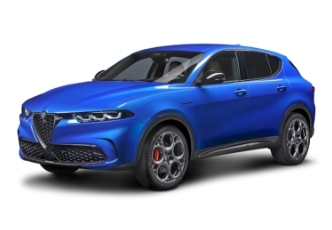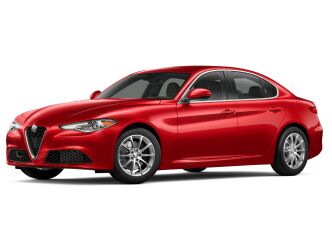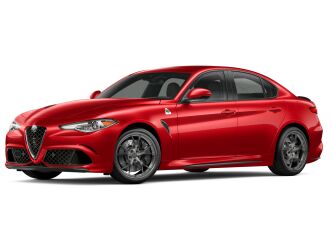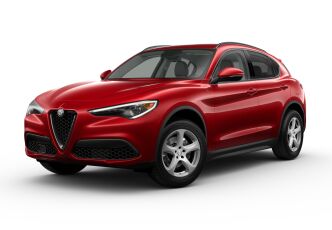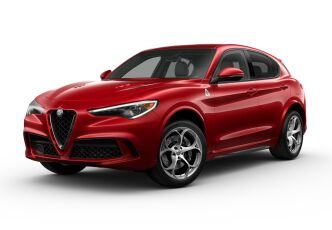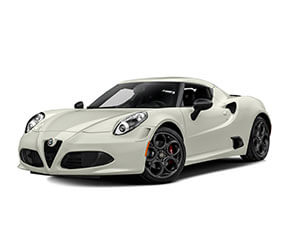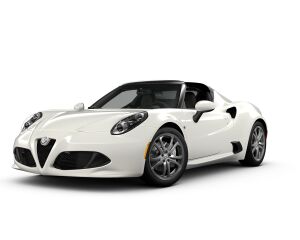Recently viewed (0)
No viewed cars.Saved (0)
Vehicle Locator
Current Models
Current Models
4C – Spider
If there’s one thing Alfa Romeo has learned from years of victory on the racetracks, it’s that balance is key. The Alfa Romeo 4C’s groundbreaking, centrally mounted aluminum engine significantly reduces weight as it eliminates the need for a driveshaft and optimizes weight distribution by concentrating mass near the center of the vehicle.
Innovative materials
Alfa Romeo uses ultralight materials in every component. These materials are not only light but also durable, stiff and dynamically efficient. The 4C begins with the solid foundation of a Carbon Fiber monocoque chassis- three times stronger and seven times lighter than conventional steel. Front and rear aluminum subframes combine strength with weight-saving technologies. Sheet Molded Compound (SMC) is used for the outer body and is 20% lighter and more stable than steel — and also resists corrosion.
Performance
The advanced engine technology of the Alfa Romeo 4C maximizes torque at low engine speeds and delivers more power in response to driver input. The control unit determines the valve timing to encourage fresh airflow from the intake through to the exhaust during the overlap period. By improving the circulation in the combustion chamber, this direct flow increases combustion efficiency and turbine speed and reduces turbo lag.
The engine is also equipped with a new generation turbocharger and a pulse converter exhaust manifold that uses pressure waves to boost torque at low engine speeds. The manifold and the turbine are made from microcast steel and designed to operate at very high temperatures (over 1,000°F) — a prerequisite to low fuel consumption on medium/ high-speed highway trips. The wastegate valve is another essential device for engine efficiency. This adjusts turbo pressure control logic to suit driving conditions, minimizing pumping losses.
Dynamic responses
The engine and traction configuration give Alfa Romeo 4C one of the most rewarding dynamic responses while driving. The 4C will accelerate as quickly as cars boasting higher horsepower — yet will corner sharper, brake harder, turn in quicker and respond more readily. It’s the kind of gratifying response that makes each and every trip something to look forward to.
Rear-wheel drive allows better grip under acceleration when engine power throws weight toward the rear of the car. Rear-wheel drive permits entering curves at higher speeds, delivering a far more intense and rewarding driving experience.
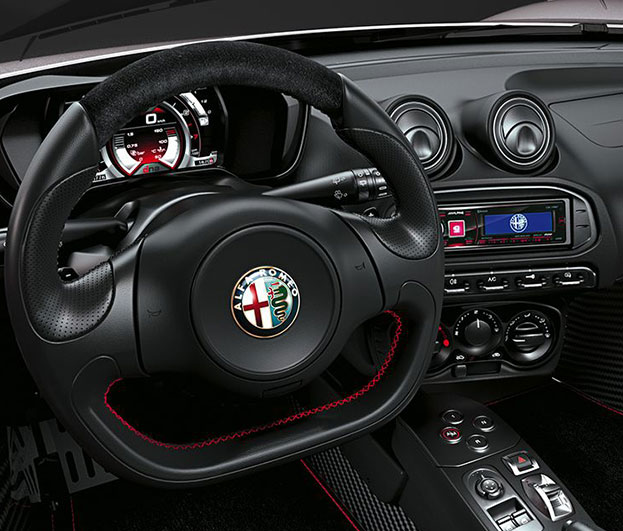

237
Hp
at 6,000 rpm
160
mph
257 km/h
4.1
sec
0-100 km/h
258
lbs/ft
at 2,200-4,250 rpm
1.7l 1-4
Specifications
| Max power | 237 hp (177 kW) @ 6,000 rpm (136 bhp/liter) |
| Estimated MPG | 24 City / 34 HWY |
| Engine | 1.7 L I-4 |
| Drivetrain | Rear Wheel Drive |
| Fuel Type | Premium unleaded |
| Maximum torque | 258 lb.-ft. (350 N•m) @ 2,200 – 4,250 rpm |
| Max speed | 160 mph / 257 km/h |
| Compression Ratio | 9.25:1 |
| Length | 157 (3,989) |
| Width | 73.5 (1,868) |
| Height | 46.7 (1,185) |
| Wheelbase | 93.7 (2,380) |
| Curb Weight, lb. (kg) | 2,487 (1,128) |
| Dry Weight, lb. (kg) | 2,337 (1,060) |
| Weight Distribution, percent F/R | 41 / 59 |
| Fuel-Tank Capacity, gallons (liters) | 10.5 (40) |
LOCATION
Alfa Romeo of Westport
1026 Post Road East
Westport, CT 06880
HOURS
Monday - Friday:
9:00AM - 6:00PM
Saturday:
9:00AM - 4:00PM
Sunday:
Closed
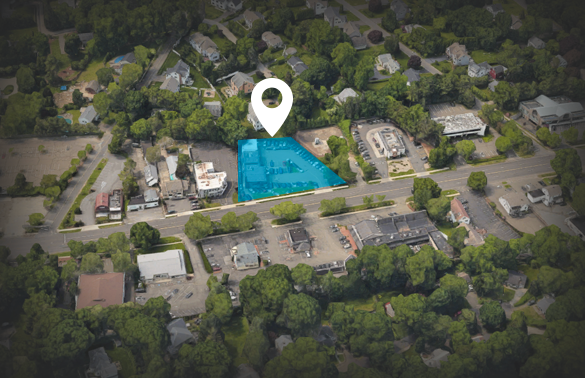
* Images, prices, and options shown, including vehicle color, trim, options, pricing and other specifications are subject to availability, incentive offerings, current pricing and credit worthiness.The advertised price does not include sales tax, dealer conveyance fee of $599, vehicle registration fees, other fees required by law, finance charges and any documentation charges.
We make every effort to ensure the accuracy of the information on this site, however errors do occur. Please verify all information with a sales associate by calling or e-mailing us.
If a person writes a check without sufficient funds in an associated account to cover it, the check will bounce, or be returned for insufficient funds. Each state has laws regulating how merchants may respond to bounced checks. In Connecticut, the merchant may file a civil suit and press criminal charges if the check writer does not reimburse him for a bounced check after the merchant has sent several notices regarding the matter.
Posted Notice Requirement
Merchants and other business owners who accept checks must post a notice where customers are likely to see it warning them of the potential consequences of writing bad checks. The notice must include the civil penalties that bad check writers may face, the appropriate Connecticut statute number and an advisory that the check writer may also face criminal penalties
Civil and Criminal Penalties
As of 2010, civil courts may require the check writer to reimburse the merchant for the value of the check plus pay up to $750 if he has no back account or $400 if the check is returned for insufficient funds. If the merchant chooses to press criminal charges, the bad check writer may face a fine of up to $1,000 and up to one year in jail. Writing a bad check is a felony charge if the check was for more than $1,000 and a misdemeanor if written for a lesser amount.
Required Written Notices
If a check bounces, the merchant must send the check writer a letter by certified mail at the check writer's last known address or place of business. Usually this letter is sent to the address on the writer's check. The letter must inform the writer that the check was returned ask him to reimburse the merchant for the amount of the check and inform him of the potential criminal or civil penalties if he fails to do so. If the check writers does not respond to the letter within 15 days of receipt, the merchant must send a second letter. This letter must inform the check writer that he has 30 days to reimburse the merchant before the merchant takes legal action against him. Both letters must be written in both English and Spanish.












